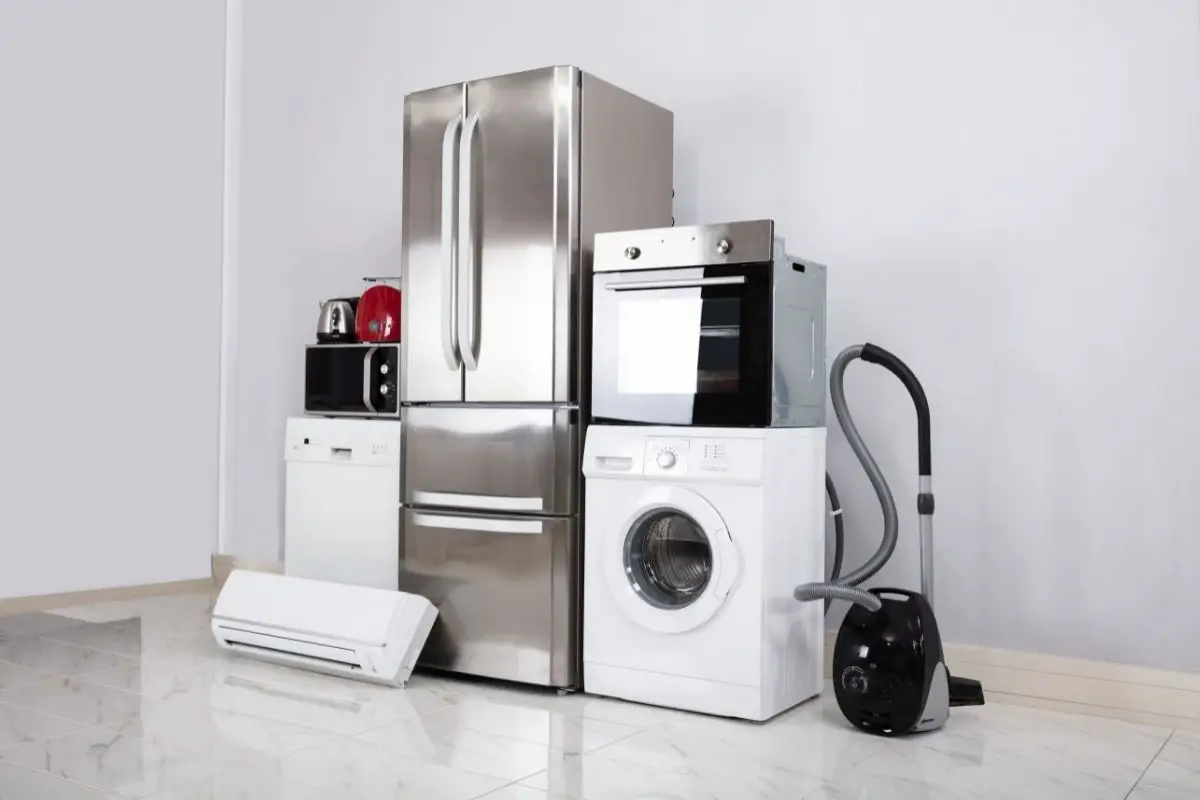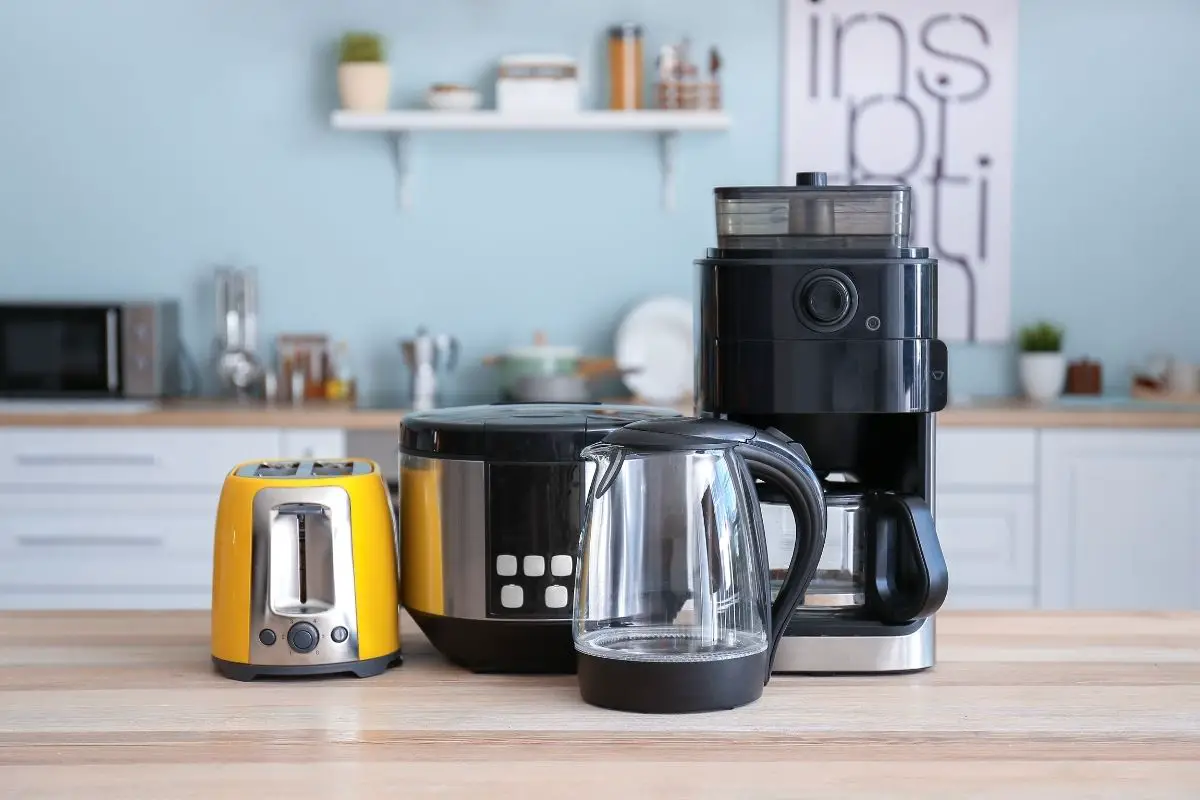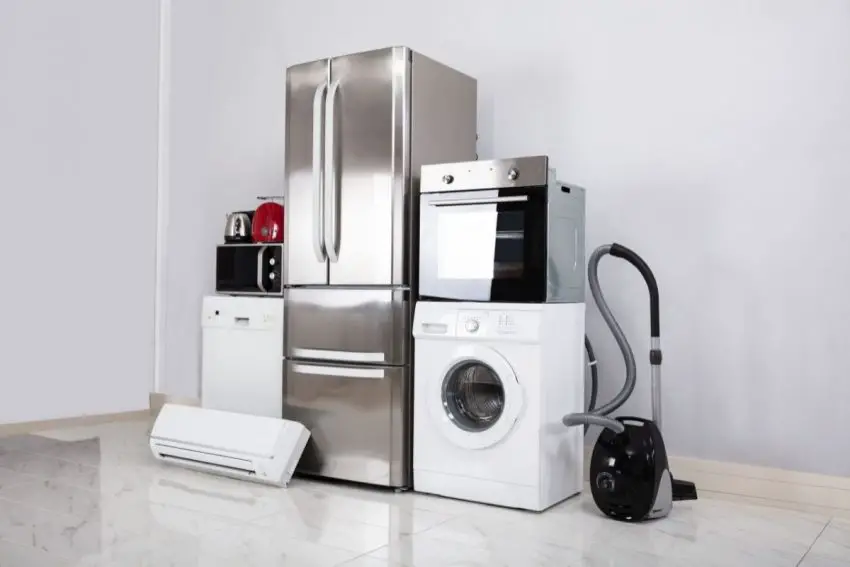There are many reasons why you might be wondering if your new appliance is tax-deductible.
It might be that you’ve replaced an old and inefficient appliance with a renewable energy update, and you wonder if you qualify for tax credits.

Or you might be a landlord or business owner, curious if necessary purchases are considered business expenses.
Overall, household appliances aren’t tax-deductible unless a landlord can claim them as a business expense.
Office supplies typically are tax-deductible, but only if purchased for work purposes.
And while energy efficient products have resulted in tax credits in the past, this is no longer standard.
The laws surrounding appliances and tax deductions do change frequently, so we recommend speaking to a professional when filing your taxes.
In this guide, we’ll provide an overview of when your appliance purchase might qualify for tax deductions, and when it won’t.
Contents
Are Energy Efficient Appliances Tax Deductible?
Running and maintaining household appliances can be a drain on both the environment and your finances.
Replacing outdated appliances with energy efficient alternatives will not qualify you for any tax deductions.
However, they can still save you money in the long run, by reducing your overall energy consumption.
While energy efficient appliances might not be tax-deductible, they may be subject to state tax incentives.
Energy efficient units might be exempt from state sales tax, or the purchase may qualify for a tax credit program.
Be sure to check out the exact incentives in your state, to see what you might qualify for.
You can also receive a tax deduction for donating your old appliances to charity. If the appliances are of good quality, you can deduct the fair market value.
Make sure to keep the receipt from the donation, so you can verify your claim if necessary.
The appliances themselves might not be considered tax-deductible, but installing alternative energy equipment can result in tax credits.
In general, household appliances are not tax-deductible, unless they were purchased as a business asset or expense.
For example, landlords can typically claim kitchen equipment as a necessary business expense.
Office appliances can also be tax-deductible, if they’re considered a necessity.
Is Alternative Energy Equipment Tax Deductible?
Alternative energy equipment is not tax-deductible, but they have been eligible for tax credits.
Renewable energy equipment includes geothermal heat pumps, small wind turbines, solar energy systems, fuel cells and biomass fuel stoves.
Energy-efficient heating and air conditioning systems have also been included in the Residential Energy Efficiency credit system.
A tax credit differs from a deduction, and can actually be more beneficial. A tax deduction reduces the amount of taxable income, allowing you to pay less overall.
A tax credit is a dollar amount, typically a percentage of the original purchase cost. In many cases, the amount received from the credit results in more gain than the reduction in taxes paid.
The Residential Energy Efficiency tax credit system expired in 2021. The Residential Renewable Energy Products tax credit system is still ongoing, and has been extended several times.
To check any recent updates or changes to the system, be sure to visit EnergyStar.gov.
This contains the latest information regarding tax credits for energy efficient appliances and equipment.

Are Business Appliances Tax Deductible?
Business appliances are eligible for tax deductions, provided they’re purchased for work purposes only.
Appliances can fall into two categories: current and capital assets. Items intended for short term use are seen as supplies, and categorized as current expenses.
Appliances purchased for long-term use (over a year) are seen as capital assets. The distinction defines how you can deduct the expense.
Current expenses are a straight forward deduction. Typically, the entire cost can be deducted in the year of purchase.
Office supplies such as highlighters, staplers, and printer ink are all considered in this category. Repairs on capital assets can also be considered in this category.
Capital assets themselves aren’t deducted as expenses. Instead, they have to be depreciated, and the expense is considered over the lifetime of the appliance.
If you think your computer will last for six years, then the depreciation expense will be claimed over the total lifespan.
An appliance might fall into either category, depending on the time you expect to use it.
For example, if you buy a new printer, then this is likely to be a capital asset, and the cost must be depreciated.
But if you need to save for a new printer, you might buy a second hand option to see you over until you have the money.
This printer would be a current expense, as it shouldn’t last longer than a year.
Are Appliances Bought For Rental Properties Tax Deductible?
It can be very hard to rent a property if it doesn’t come with a certain level of appliances. In some states, you’re legally required to keep a certain level of equipment installed.
Because of this, appliances such as refrigerators are considered a business expense, and are therefore tax-deductible.
These expenses can potentially be deducted as current expenses, or depreciated over time as capital assets.
In most cases, large appliances will be depreciated, and the deductions spread out over several years.
However, they can sometimes be deducted in a single year using the de minimis safe harbor election system.
This allows long-lasting items under a certain dollar amount to be deducted rather than depreciated. In some cases, this may be better for tax purposes.
Final Thoughts
For the most part, appliances are not tax-deductible unless they are a necessary business expense.
Landlords can claim household and kitchen appliances as a necessary business expense, but the average homeowner cannot.
However, energy efficient appliances have at times been eligible for tax credits, and installing energy efficient equipment can also result in tax credits.
To learn more, visit the EnergyStar.gov website, which covers the latest legislation.
For business owners, necessary appliances and supplies can be considered either expenses or assets, but both are tax-deductible.
The long-term usage of an appliance determines whether it is a single deduction, or if it must be depreciated over several years.





